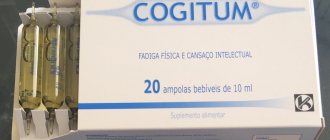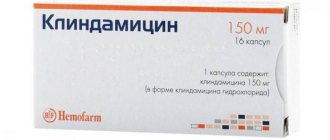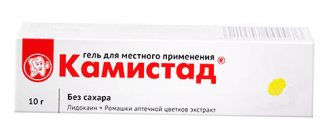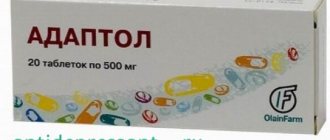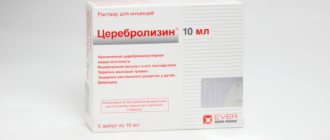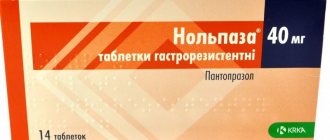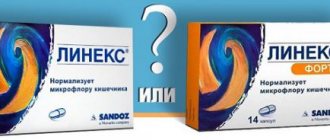Delayed speech development is one of the most complex diseases that occurs in children in the first years of life. Despite the fact that the process of speech formation is purely individual, there are certain age norms.
To help a child develop at the same level as his peers, neurologists and pediatricians recommend treatment with special medications. Experts often prescribe Cogitum for delayed speech development. Parents' reviews regarding this medication are divided. Should I give my child this drug? Let's try to figure it out.
What is Cogitum for?
Cogitum is recommended for use by children who have mental disorders. The drug has a positive effect on the body in a short time if you strictly follow the dosage regimen. Taking the drug is considered appropriate if it is necessary to quickly restore the functions of the nervous system and improve the general condition of the patient.
Experts often recommend taking it to children with asthenic syndrome, when the child quickly gets tired and becomes pliable. Mood can decrease in children during age-related crises; in such cases, Cogitum is prescribed in combination with antidepressants.
Various factors can influence the general condition of the child:
- change of team;
- beginning of the school year;
- change of place of residence;
- family discord and others.
Cogitum for children, reviews from experts confirm this, will be beneficial if there are no serious disturbances in the functioning of the central nervous system, but minor deviations in behavior are noticeable, memory decreases, and the school curriculum is poorly taught.
The medicine is recommended for young patients who have:
- neurotic disorders;
- symptoms of asthenic syndrome;
- mental retardation;
- neurosis, sudden mood swings;
- excitability and depressive states;
- delayed speech development;
- fatigue, especially if the child has suffered a viral illness;
- perinatal damage to the central nervous system;
- frustration during adaptation to a new environment.
The drug gives good results during the recovery period after a stroke. Children at an early age who have poor oral speech perception and who have difficulty speaking need to take Cogitum immediately. It is recommended to take it in combination with other drugs.
It is precisely due to the fact that the drug contains acetylaminosuccinic acid that it:
- stimulates the functioning of the nervous system, all electrochemical processes in the brain occur much faster;
- regulatory processes return to normal, all tasks assigned to the brain go more smoothly;
- the plasticity of the central nervous system increases, the child remembers the school curriculum better;
- accelerates mental and speech development;
- has a general strengthening effect, increases endurance, helps to better cope with any stressful situations;
- activates the production of antibodies and interferon.
It is also worth knowing that the drug Cogitum can be used not only by people with the nosological forms described above, but also by healthy patients of any age who are subject to mental and emotional stress.
Therefore, the most important indicator for the use of Cogitum is the stimulation of brain activity in children and adults in the absence of persistent somatic illness and severe neurological deficit. The spectrum of action of the drug Cogitum is so wide that today it ranks first among the most effective and safe means of nootropic and neurometabolic action.
Pharmadynamics of Cogitum
Acetylaminosuccinic acid, which is part of the drug, is a substitute for aspartic acid, which is considered one of the main amino acids that make up the nerve tissue of the brain. It is this that helps regulate the speed of all metabolic processes and the conduction of impulses between neurons.
Therefore, there is an assumption that when its level in the human body increases, the functions of the central nervous system as a whole are activated.
Therefore, after taking Cogitum, the formation of antibodies and immunoglobulins accelerates. The drug also has a moderate immunomodulatory effect and increases the child’s immunity. Also, the active component takes an active part in the synthesis of DNA and RNA, normalizes the processes of excitation and inhibition of the nervous system, and increases physical activity.
Acetylaminosuccinic acid, like glutamic or glycine, is a neurotransmitter in the central nervous system. It acts by providing hepatoprotective and psychostimulating effects, reduces the effects of radiation, and activates the process of elimination of neurotoxic ammonia from the body.
Application of Cogitum
Take the drug orally, drinking the contents of the ampoule at a time. The solution has a pleasant banana taste. There is no need to dilute the liquid, but you can add a little purified water without gas. It is advisable to take Cogitum in the morning.
In order not to harm the child’s body, the drug should be taken as follows:
- Open the ampoule right before taking the medicine by making a small incision with a nail file;
- break off one end of the ampoule and substitute a glass;
- Turn the ampoule over and break off the end on the other side, making an incision with a nail file;
- The liquid is easily poured into a glass.
The course of therapy is determined by a specialist for each patient individually, since it is necessary to take into account the child’s condition, as well as taking into account the ailments present in the anamnesis. The average course of treatment is 3 weeks. If necessary, the doctor can increase the course of treatment and adjust the dosage. After the break, you can take the second course.
The following doses are recommended for children:
- 1 ampoule for schoolchildren, aged 7 to 10 years;
- 2 ampoules for teenagers over 10 years old.
The instructions for the drug say that it can be given to children from the age of 7, but pediatricians recommend giving it to children from the age of 4, and sometimes from 3 years. Specialists may make such exceptions if the child has serious speech impairments and significant mental retardation. Cogitum gives excellent results even with short-term therapy.
Cogitum for children, reviews from neurologists confirm this fact, it is convenient to take without adjusting the dosage if one or more doses were suddenly missed. If for some reason a dose was missed, there is no need to double the dosage. Treatment can be stopped at any time without any consequences for the patient.
Reviews
- Evgeniya, 35 years old. I would like to leave a positive review about Cogitum for children with speech underdevelopment. Our son spoke poorly, until he was 3 years old, except for “mom”, no more coherent words, only babble. At first we were recommended B vitamins for children, but there were no visible changes. By the age of 5, we had developed vocabulary, but we still couldn’t string sentences together. At the age of 6, at our own risk, the doctor prescribed this drug to us. Literally after a week of taking it, the result became more than noticeable. We could already say a couple of sentences about the kindergarten, and we started talking during the walk. By school, things had completely improved, Nikolka learned to pronounce many things. So the stimulator works, I recommend it to everyone!
- Alexandra, 29 years old. Since birth, our daughter has had delays in growth and development. At first they took Elkar for infants, it seemed like she was starting to catch up with her peers. Then, at the age of 5, I fell into a stupor again. Basic knowledge, of course, has not gone away; we still understood what a circle and a square were. But not a step forward. And school is just around the corner. In the first grade I did not keep up in all respects, I studied at home and went to special clubs. Then we finally decided to see a doctor. We were prescribed Cogitum. And literally after the first course things went uphill. Now we no longer accept, we study in the third grade and succeed in everything. Good drug.
- Maria, 31 years old. Everything was fine with us before the move and new school. I don’t know what exactly went wrong, but if before the 3rd grade I had a daughter who was successful in everything, then in the 4th grade she began to lag far behind, came with bad grades and an even worse mood. They showed it to the doctor and he said it was depression. I still don’t understand what depression can happen at 10 years old, but they drank Cogitum. We had a course for 21 days, then a break of 2 weeks, and again. After another week of treatment, my daughter felt better, everything returned to normal. I don’t know if it went away on its own or if the stimulant helped.
- Oksana, 33 years old. Our son was born prematurely, he was developmentally delayed, and we were periodically prescribed vitamins for the growth of our children. Everything seemed to improve with weight and height, but problems persisted in academics until the 2nd grade of school. Then we were advised to drink Cogitum. Yes, my success has increased, I’ve started to catch up with my classmates. But in the second week of taking it, we suddenly began to experience headaches and periodic headaches. I had to give up such a lifesaver. For now we just take a course of B vitamins from time to time, but there are no longer any backlogs.
- Alla, 30 years old. We never had any problems as such. I just took the best vitamins for children in the demi-season from the age of 3, in a comprehensive manner. Then they advised me to Kogitum, like drinking before school, the workload will still increase, and there will be a lot of stress - 1st grade. I didn’t notice anything supernatural after taking this stimulant. No benefit, no harm, like clean water. So, it seems to me that its effect in advertising and reviews is somewhat exaggerated.
Overdose
No cases of drug overdose were identified. No toxic effects are expected.
But experts note that some patients experience the following symptoms:
- headache;
- sudden change in mood;
- dizziness.
If you have such symptoms, you should immediately seek advice from the doctor who prescribed Cogitum. There is no special treatment for overdose; it is best to immediately stop taking the drug for several days or choose an analogue. After the unpleasant symptoms go away, you can start taking the drug, but only by reducing the dose.
Contraindications
The drug “Cogitum” cannot be taken by all patients for RRR and other neurological pathologies. Despite the fact that the medication is generally well tolerated by both children and adults, you should first familiarize yourself with the contraindications. First of all, the solution is prohibited for people who have hypersensitivity or complete intolerance to drugs based on acetylaminosuccinic acid.
According to the instructions, the drug should not be used to treat children under seven years of age. It is also prohibited to give medicine to a child without a doctor's prescription.
Side effects of Cogitum
Cogitum by children, reviews from parents and doctors confirm this fact, it is well tolerated. In some cases, patients experienced an allergic reaction to the drug, manifested in the form of skin rashes and itching. If an allergy occurs, you must urgently stop taking the drug and consult a doctor to find out which drug to replace.
In some cases, parents noted aggression in their children after taking the drug. In this case, it is necessary to urgently seek help from a specialist so that he can adjust the dosage; most often, the dose is reduced. You may need to stop taking the drug for a while if the case is severe.
There have also been cases where patients complained of headaches. And it is connected with the fact that the active component of the drug has the ability to accumulate in the tissues and cells of the body. The next dose of the drug causes “too much”, which is why side effects in the form of headaches are observed.
Combination of Cogitum with other drugs
Cogitum for children is often recommended as a complex therapy. Reviews from doctors say that it is thanks to the comprehensive solution of the tasks that it is possible to solve even serious problems associated with disorders of the brain, speech and learning problems in a short time and without consequences for the child.
Cogitum is used for children with delayed speech development.
During medical studies, no reactions were detected with Cogitum in combination with other drugs. You can take the product with any medications, and no undesirable effects will be observed. The main components of the drug do not react with alcohol, but it is still better not to use alcohol-containing products during therapy.
What is ZRR?
SRD is a delay in speech development. The diagnosis is made when the child masters oral speech later than his peers. How to understand whether there is a delay or not? It is necessary to pay attention to whether the child’s development complies with established standards. They look something like this:
- By 2-3 months, the baby begins to coo and stretch out vowels, as if addressing others.
- By 4–5 months, a variety of open syllables appear, which are pronounced drawlingly.
- By 6–7 months, you can sometimes catch the imitation of adult intonations, semantic pauses while waiting for an answer.
- By 8 months, repetition of syllables and simple words is unconscious.
- By 10 months, listening to the speech of others.
- By one year, the appearance of 5-10 simple one-syllable words (“da”, “sa”, “ne”, etc.) or of repeated syllables (“ma-ma”, “ba-ba”, “pa-pa”, “nya” -nya”, “bi-bi”, “bo-bo”, etc.).
- Up to one and a half years, the vocabulary can only be replenished with parsyllabic words or words formed from the initial syllable, for example, bear - “mi”, cow - “ko”. But at the same time, the stock of understandable words expands and this is important. Onomatopoeia of animals and cars appears, and the pointing gesture is active.
- By the age of two, the baby can make simple sentences like “I want to eat”, “mom give it”, “dad let’s go”.
- After another year, speech becomes more coherent, although still primitive. A three-year-old child is able to explain his needs and wants in words and fully understands adults.
- By age four, a child can work on pronouncing sounds by watching adults' lips move. Correctly inflects words and uses pronouns. Starts to “play” with speech.
- At the age of five, a child understands that a pine tree is a tree, a chamomile is a flower, a pig is an animal, etc.
- By the age of 6, he can retell a simple text, understands the time sequence, and analyzes the logic of the narrative.
- At seven years old, children have the same speech as adults. They will be able to improve it during their schooling.
Normally, there may be slight delays within 6 months. If the gap is about a year, you should consult a doctor: he will examine the child and determine an adequate treatment regimen.
Conditions and periods of storage of Cogitum
In order for the drug to retain its properties and not cause negative reactions to the child’s body, it is necessary to adhere to the following storage conditions:
- Only a dark place is required so that the sun's rays do not fall on the ampoules;
- the storage temperature should not exceed +25 degrees;
- do not expose to low temperatures;
- keep away from children;
- Store for no more than 3 years from the date of manufacture of the drug.
The drug can be stored for 3 years from the production date indicated on the packaging.
Price
An important issue for every patient is the cost of the prescribed drug. The price of a solution for the treatment of central nervous system problems depends on many factors: dosage, packaging, retail outlet and manufacturer. Below is a table with data in the city of Moscow:
| Release form | Price in rubles | Pharmacy name |
| Solution, packaged 25 ml, 30 ampoules/pack | 2480 | "August" |
| 2540 | "Frigate" | |
| Solution, packaged 10 ml, 10 ampoules/pack | 860 | "Gabius" |
| 999 | "Amadea" | |
| Solution, packaged 25 ml, 30 ampoules/pack | 2160 | "Pharmacy on Glushko" |
Cogitum's analogues
As an analogue of Cogitum, you can use acetylaminosuccinic acid, which is available in pure form.
There is no other drug with a similar effect, but there are other products that can be an excellent alternative, but with a different active ingredient:
- Kudesan. For children, the drug is available in the form of chewable tablets. The active ingredient is ubidecarenone. For children, the drug is recommended for congenital myopathy, asthenic syndrome, neurocircular dystonia, during recovery after surgery and brought-on diseases. Take the drug 1 chewable tablet in the morning for 1 month.
- Mexidol. Available in the form of tablets that are taken orally or in solution for infusion. The drug is recommended for head injuries, neuroses, blood flow disorders in the brain, and withdrawal syndrome. There is no dosage for children; it is selected for each child individually. The standard Prima regimen is 1 tablet 3 times a day.
- Noocetam. Available in the form of granules intended for making syrup. The drug has a positive effect on metabolic processes in the brain, facilitates the learning process, and improves microcirculation. Prescribed for skull injuries, asthenodepressive psychosis, depression, neuropathy, asthenic disorders. For children, the drug is prescribed in the form of syrup, 30-50 mg per day.
- Vinpocetine. The drug is produced in the form of tablets, in a package of up to 50 pieces. There is also a form designed for injections. The main component of the drug is vinpocetine. Experts recommend taking it for disorders of blood flow in the brain, after a stroke, autism, epilepsy, and psychosis. The instructions for Vinpocetine indicate that the drug is contraindicated for children under 18 years of age, but in the presence of serious disorders it can be prescribed even to children under one year of age. Neurologists often prescribe this remedy to children at 3 months of age if they have hypoxic brain damage. The children's dosage is selected individually for each child, depending on the complexity of his illness and age. Already a week after the start of therapy, a therapeutic effect is observed.
- Diwaza. Produced in the form of lozenges. This drug contains 2 active components: affinity-purified antibodies to endothelial NO synthase and affinity-purified antibodies to the brain-specific S-100 protein. The main substance is. The drug is recommended for use in cases of circulatory disorders in the brain. The drug is approved for children from the age of 18, but if the cases are severe, then experts prescribe it at an earlier age, individually selecting the dose.
- Cortexin. Active ingredient of the same name. Available in the form of an injection solution. The drug contains low molecular weight peptide fractions that easily penetrate the brain and nourish nerve cells. It is allowed to be given to children from the first days of life. For children from birth, the dose is set at 0.5 mg per kg of body weight. Course 10 days.
- Gliatilin. The active component is choline alfoscerate. Available in the form of an injection solution and gelatin capsules. The drug has neuroprotective and neurotropic effects. Helps protect the nervous system from adverse factors. Recommended for children from 3 days after birth. The capsule must be dissolved, and injections are made into the thigh or shoulder. You need to take the drug in the morning, and also give injections before 11 o’clock.
Cogitum for children is the best solution if the child has an unstable emotional state and serious academic stress.
Reviews from parents and specialists tell me that the drug gives good results in a short time and has almost no contraindications for use. It is worth remembering that the dose is selected by the doctor, who will subsequently monitor the condition of the little patient.
